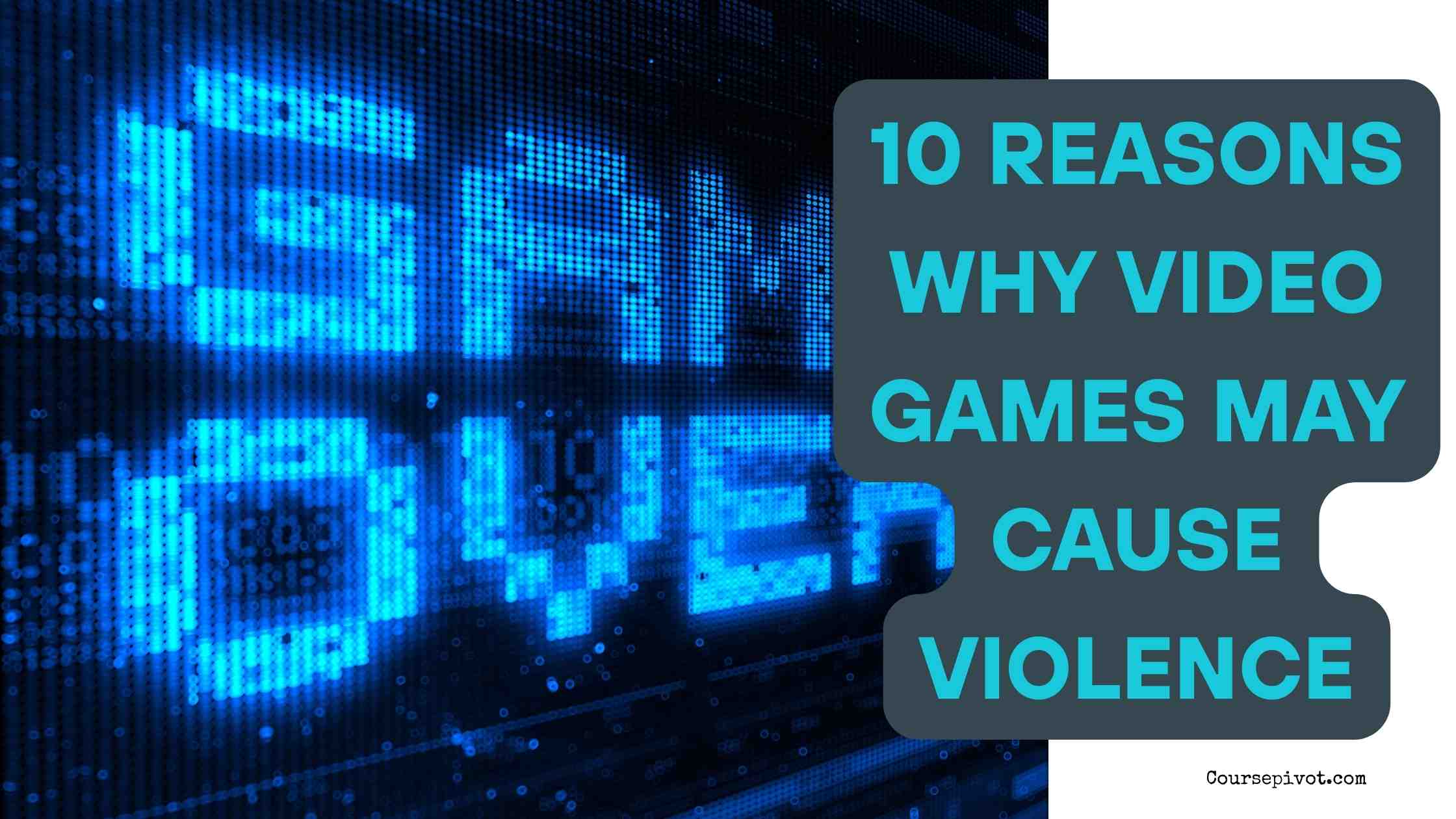
10 Reasons Why Video Games May Cause Violence
Video games are often at the center of debates about youth behavior, aggression, and violent tendencies.
Are video games making people more violent? The answer isn’t simple.
While millions play peacefully, a growing body of research and experience suggests that certain video games can contribute to aggression and even real-world violence in vulnerable individuals.
Table of Contents
As someone who has both played and studied games closely, I can say this: the concern isn’t entirely unfounded.
Below are 10 reasons why video games may cause violence, especially when misused, overplayed, or consumed by the wrong audience.
1. Desensitization to Real-World Violence
When you spend hours shooting enemies, stabbing characters, or blowing things up, the lines between fantasy and reality blur.
Over time, repeated exposure to graphic violence can lead to emotional numbness.
What once shocked you becomes routine.
This desensitization makes violent actions seem less serious in real life.
- Read our blog on 10 Reasons Why Video Games Are Good for You
2. Aggressive Role-Playing and Identity Formation
In many games, you are the killer, the warrior, the assassin.
You’re rewarded for violence. You progress by eliminating others.
Over time, players—especially young ones—may start identifying with violent characters, subtly adopting aggressive traits or viewing violence as a solution to problems.
3. Positive Reinforcement for Violent Behavior
Most violent video games work on a reward system:
- Kill an enemy → earn points
- Use a weapon well → unlock a new level
- Finish a mission violently → get praised or promoted
This is behavioral conditioning—reinforcing aggression through positive feedback.
The brain is trained to associate violence with success, which can bleed into real-world thinking.
4. Poor Emotional Regulation
Some video games are extremely frustrating.
They provoke anger, tension, and competitiveness.
If a person doesn’t know how to manage these emotions, they may explode in aggressive outbursts, both online and offline.
This is especially risky for players with mental health struggles or weak impulse control.
- Read our blog on 10 Reasons Why Fortnite Is Bad
5. Hyper-Stimulation and Adrenaline Spikes
Intense, fast-paced games flood the body with adrenaline.
That adrenaline doesn’t disappear when the screen turns off.
A constantly overstimulated nervous system can lead to irritability, restlessness, and aggression.
In short, your body is always in fight mode—even when there’s no threat.
6. Copycat Behavior and Normalization of Violence
Video games are immersive. When you repeat actions—like attacking someone in-game—you internalize them.
Some players begin to mimic what they see, especially in games with lifelike graphics, realistic sounds, and detailed bloodshed.
The more “real” it feels, the more normal violence becomes in the mind of the player.
7. Social Isolation and Lack of Empathy
Violent games often encourage solo gameplay and competition over cooperation.
Spending hours alone, immersed in virtual violence, can slowly erode social sensitivity and empathy.
Without emotional connection, it’s easier for some people to justify aggressive or harmful actions toward others.
8. Glorification of Violent Heroes
In many blockbuster titles, the hero is the one who kills the most.
The message? Violence equals power, control, and respect.
When that’s the model of success, players may begin to internalize that dominance through aggression is acceptable or even admirable.
- Read our blog on 10 Reasons Why Video Games Are Good for You
9. Vulnerable Audiences Are More Affected
Most gamers can separate fiction from reality. But not everyone can.
Children, teens, or individuals with mental health issues are more likely to be influenced by what they see.
For them, video game violence can become a model for real behavior—especially if they lack strong parental guidance or role models.
10. Blurring of Real Life and Game Logic
In extreme cases, constant gaming causes people to interpret real-life situations using “game logic.”
This can mean:
- Seeing people as enemies
- Thinking life is about winning or losing
- Believing violence is a quick way to resolve conflict
This cognitive distortion can have serious real-world consequences—especially in moments of stress or rage.
Can Video Games Cause Violence?
So, do video games cause violence?
Not always. But they can—especially when consumed without balance, maturity, or context.
It’s not the games alone—it’s the environment, the mindset, and the player that shape the outcome.
But we can’t ignore the strong psychological and behavioral effects that violent video games can have on certain individuals.
As with all powerful tools, video games must be used responsibly.
Parents, educators, and gamers alike need to be aware of what’s being played, for how long, and why.
Because if left unchecked, video games can do more than entertain—they can condition.
Cite this article
You can copy and paste your preferred citation format below.
Martin, L. & Arquette, E.. (2025, May 22). 10 Reasons Why Video Games May Cause Violence. Coursepivot.com. https://coursepivot.com/blog/10-reasons-why-video-games-may-cause-violence/



